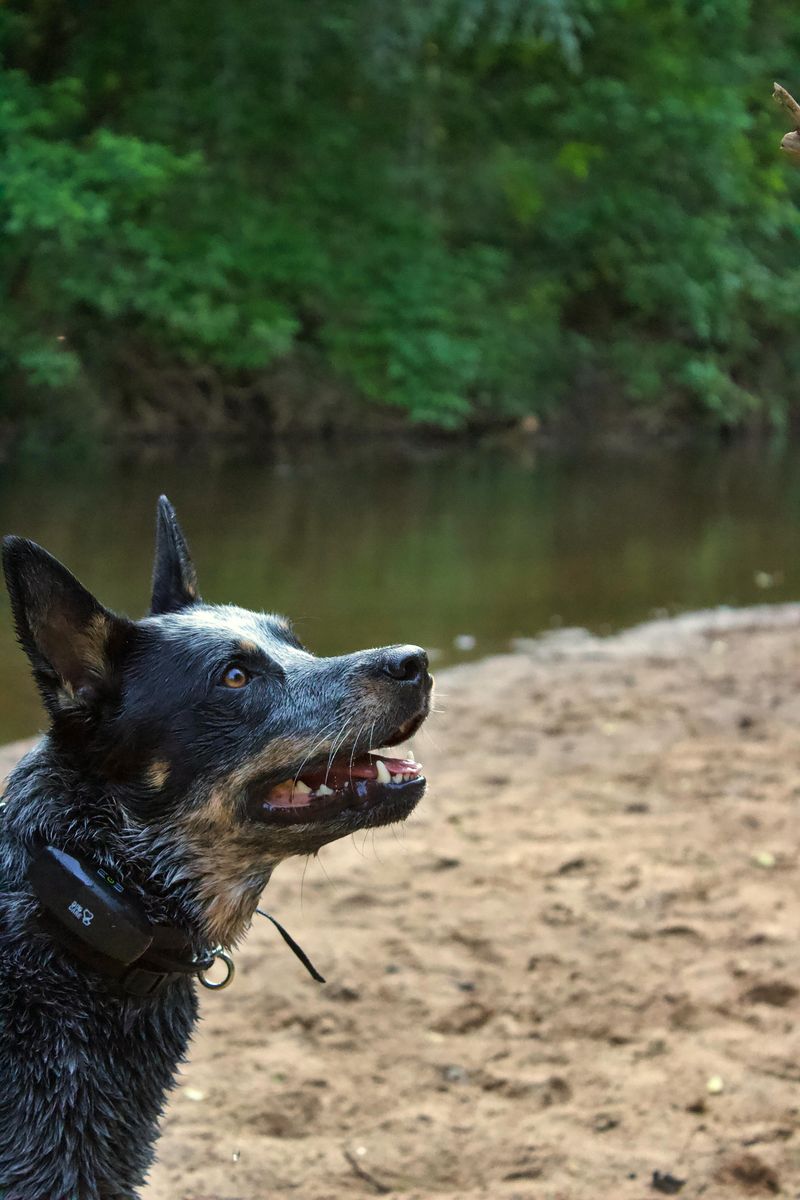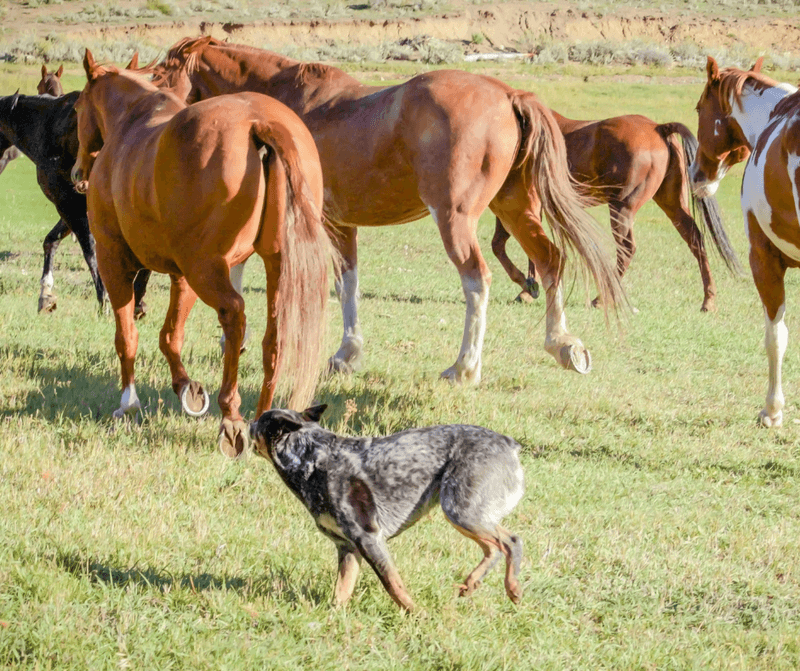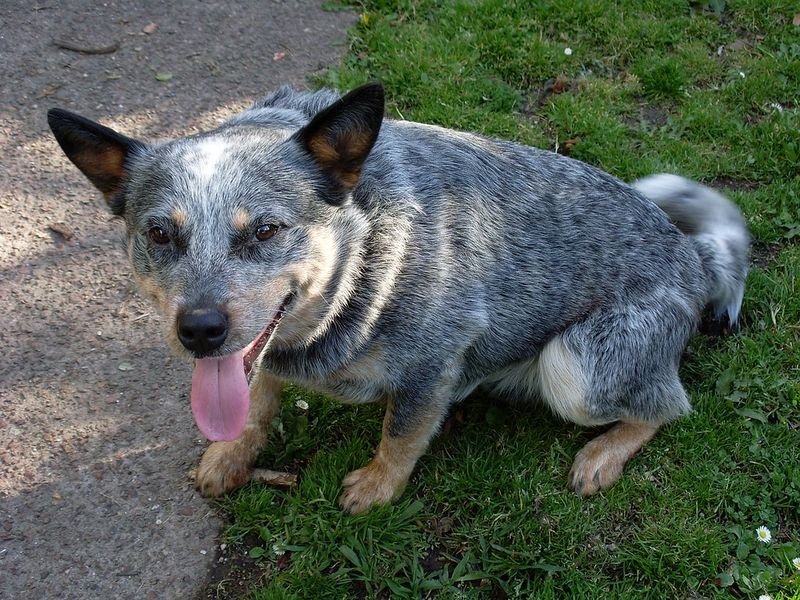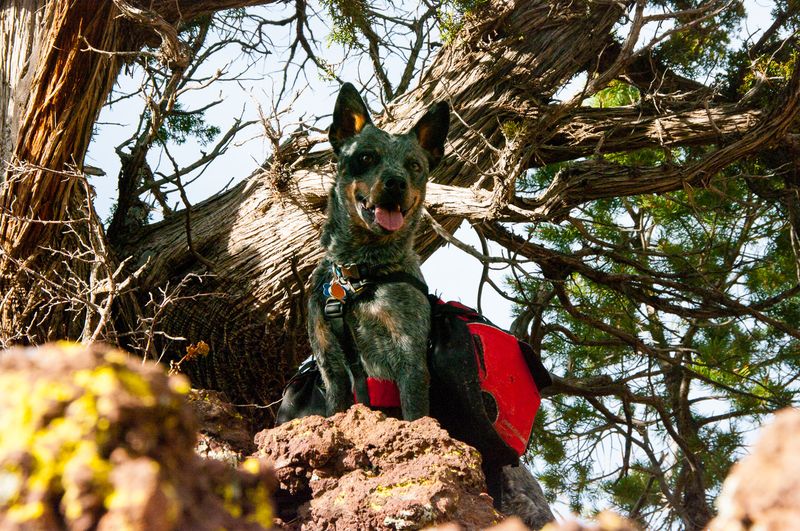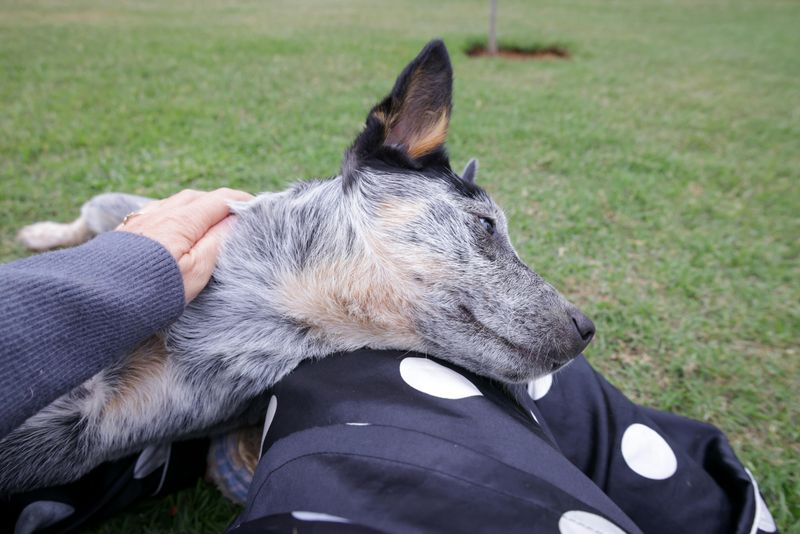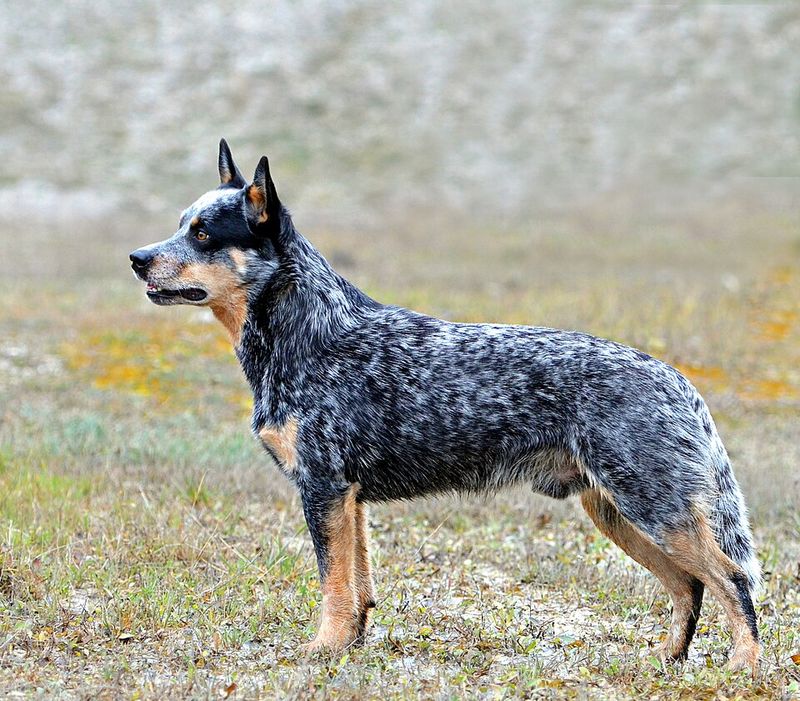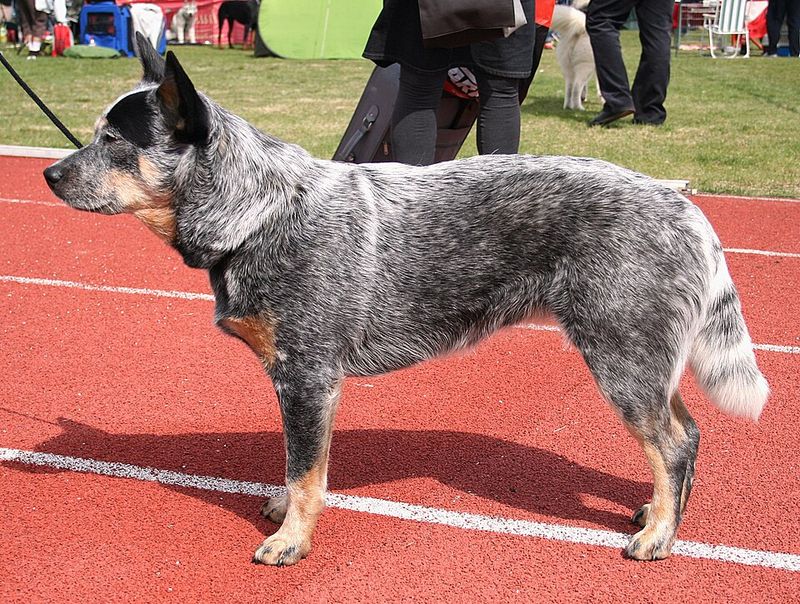Blue Heelers, also known as Australian Cattle Dogs, are a breed known for their intelligence and high energy levels. Before bringing one into your home, it’s essential to understand their unique characteristics and needs. Here are 14 key facts to guide you in making an informed decision.
Intelligence and Energy
Blue Heelers possess remarkable intelligence and boundless energy, making them exceptional companions for those who appreciate an active lifestyle. Their ability to learn quickly is impressive, yet it requires consistent mental engagement.
These dogs thrive in environments where their intelligence is challenged. Puzzle toys, interactive games, and agility courses are excellent ways to keep their minds sharp.
If you’re looking for a dog that can keep up with your adventures and thrive on mental stimulation, a Blue Heeler might be the perfect match.
Daily Physical and Mental Exercise
For a Blue Heeler, daily exercise is not just a preference; it’s a necessity. These dogs require both physical and mental activities to stay balanced and content.
Long walks, runs, or play sessions in open spaces will help satisfy their physical needs, while training sessions or games will engage their minds.
Without adequate exercise, they may develop undesirable behaviors. Providing a structured routine that includes ample opportunities for activity is essential to their well-being.
Strong Bond with One Person
Blue Heelers are known for forming intense bonds with a single person, often becoming their shadow. This loyalty creates a deep connection that can be both rewarding and demanding.
Their attachment means they may follow their chosen person everywhere, seeking attention and companionship. These dogs thrive in environments where they feel secure with their favorite human nearby.
Understanding this aspect is critical, as it may impact household dynamics, especially in larger families.
Wary of Strangers Without Socialization
Naturally cautious, Blue Heelers may be wary of strangers if not properly socialized from a young age. This wariness stems from their protective instincts and can be managed with early exposure.
By introducing them to various people, places, and situations, you can help them develop confidence and ease around new faces.
Ensuring positive experiences in different environments will allow them to grow into well-adjusted companions.
Natural Herders and Nipping
With a history rooted in herding, Blue Heelers often carry an instinct to nip at heels, especially when excited. This behavior, while natural, may be problematic in a home environment.
Training them early to curb this tendency is essential, especially around children or other pets. Redirecting their energy into appropriate activities can alleviate these urges.
Understanding their herding background helps in managing and channeling their instincts positively.
Importance of Consistent Training
Consistency in training is essential for a Blue Heeler, given their intelligence and strong will. Establishing clear boundaries and routines will aid in developing a well-mannered companion.
Obedience classes, coupled with regular practice at home, will reinforce positive behavior. Reward-based methods are particularly effective with this breed.
Investing time and patience in training will pay off, resulting in a loyal and responsive pet.
Thriving on a Job or Purpose
Blue Heelers excel when given a job or purpose, aligning with their roots as working dogs. Whether it’s participating in agility sports or assisting with household tasks, providing them with a sense of duty fulfills their innate drive.
Engaging them in activities that challenge both body and mind will keep them happy and healthy.
Finding creative ways to involve them in your daily life will enhance your bond and enrich their existence.
Boredom Leading to Destructive Behavior
Without sufficient mental and physical stimulation, Blue Heelers can become bored and resort to destructive behaviors. Chewing, digging, and excessive barking are common signs of frustration.
Providing a variety of toys and engaging activities can prevent these issues. Rotating toys and introducing new challenges will keep them entertained.
Understanding their need for constant engagement is vital for maintaining harmony in your home.
Year-Round Shedding and Grooming
Blue Heelers shed continuously throughout the year, requiring regular grooming to manage their coat. A consistent brushing routine helps reduce shedding and keeps their coat healthy.
Investing in a quality brush can make the grooming process enjoyable for both you and your pet.
Regular grooming sessions also provide an opportunity to check for any skin issues or abnormalities, ensuring their overall well-being.
Best Suited for Active Owners
The energetic nature of Blue Heelers makes them ideal for active owners or families who enjoy outdoor adventures. Their stamina and enthusiasm align well with those who hike, run, or engage in outdoor sports.
Their need for regular physical activity requires a commitment to an active lifestyle. In return, you’ll gain a loyal and adventurous companion.
Matching their energy levels ensures a harmonious and fulfilling relationship.
Preventing Overprotective Behavior
Proper socialization is crucial in preventing overprotective behavior in Blue Heelers. Without exposure to various situations, they may become overly defensive of their home or family.
Introducing them to a wide range of people, animals, and environments will help them develop a balanced temperament.
Early and ongoing socialization fosters confidence and reduces the likelihood of aggressive guarding behaviors.
Known for Loyalty and Alertness
The loyalty of a Blue Heeler is unparalleled, often forming a vigilant bond with their family. Their alertness makes them excellent watchdogs, always aware of their surroundings.
This keen awareness, coupled with their protective instincts, ensures that they’re always on guard, ready to alert you to any unusual activity.
Their devotion is a hallmark of the breed, providing security and companionship.
Health Considerations: Hip Dysplasia and Deafness
While generally healthy, Blue Heelers are prone to specific conditions like hip dysplasia and deafness. Regular veterinary check-ups are essential to monitor and manage these potential issues.
Maintaining a balanced diet and appropriate exercise can aid in promoting joint health, while routine hearing assessments ensure early detection of auditory problems.
Being proactive about their health needs contributes to a long, fulfilling life.
Happiness in Daily Routine
A Blue Heeler’s happiness is deeply connected to being part of your daily routine and activities. They thrive when included in family gatherings, outdoor adventures, or simple household chores.
Their sense of belonging and purpose is fulfilled when they are actively engaged with their loved ones.
Incorporating them into everyday life not only enriches their existence but also strengthens the bond between you and your furry friend.


